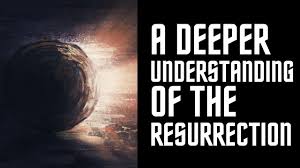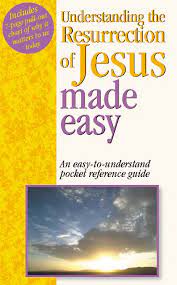Under our circumstances
In our culture, it is not unusual for people to greet one another with the inquiry, “How are you?” In response, a multitude of replies are available. However, my favorite is, “I’m doing fairly well under the circumstances.”
This is my opportunity to respond, “Why are you under your circumstances and what are you doing to get back on top?” Circumstances are conditions or facts that affect a situation. These can be either positive or negative. They define a state in which an individual, group, or even a nation may find itself.
As we daily face “tumultuous” circumstances—pandemics, social strive, economic uncertainty—it is important to remember that God sees. Even in our worst of circumstances, God is present (Ps. 139:7-10). God sees, God cares, and God speaks.
Circumstances for all times
There are many biblical examples that illustrate how God used circumstances to speak to His people. Circumstances dictated that Moses would be set adrift in the Nile. It was there that he would be found by the king’s daughter and adopted into the royal household by the ruling Pharaoh (Exod. 2:1-10).
God later spoke to Moses after his “40-year circumstance” of working for his father-in-law Jethro the priest of Midian (Exod. 3:1). God then re-directed him to deliver His people Israel, who were dealing with their circumstance of bondage.
In the book of Acts, God speaks to the early church by using the political and social circumstances around them. Jesus had clearly articulated the scope of the church’s ministry: “and you shall be witnesses to Me in Jerusalem, and in all Judea and Samaria, and to the end of the earth” (Acts 1:8).
While it was within their “comfort zone” to stay in Jerusalem, God spoke through the circumstance of persecution to move the gospel to a larger audience. Throughout the Bible we find God speaking to people through special favor (1 Sam. 1:20), through personal loss (Ruth 1:3-5), or through miraculous deliverance (Acts 23:30-31). God spoke to them through their circumstances.
Circumstances today
God still speaks today through circumstances. He will use conditions and situations from our everyday life to place us in a position to hear His voice.
Does God create circumstances to make us do His will? No, God has created us as freewill agents and desires that we choose to live within His divine plan. But God will allow circumstances to flow into our life to accomplish His glory and our good (Rom. 8:24).
Conforming circumstances
God permits circumstances in our lives that will mature us and grow our faith (1 Pet. 1:5-7). What may appear at first to be a “stumbling block” may, in actuality, turn out to be “steppingstones”.
God also speaks through closed doors as well as opened doors, this includes delayed prayers. While the Apostle Paul wanted to share the gospel in Asia, he repeatedly found the way blocked by the Holy Spirit (Acts 16:6-10).
What our passage suggests to me is that God may close one door of ministry in order to open a better one. Paul was thinking locally—Asia and Bithynia. God was thinking more globally—cross the Aegean Sea into modern-day Europe. Divine redirection demands that we trust divine omniscience: we would have made the same choice if we knew what God knew. Through God’s providential redirection, Paul was able to plant churches in Philippi, Thessalonica, Berea, and Corinth. What a great open door![1]
As we proceed in this Christian walk, we must remember that the intent of our life is to glorify God and to accomplish His purpose on earth (2 Cor. 5:15). That is why it is important to be intentional in prayer and reading God’s Word especially during difficult and challenging times, regardless of the circumstance (Phil. 4:6-13).
As we develop our personal relationship with God, we will understand that He loves us and can be trusted with every aspect of our life. Sometimes our circumstances will take us out of our comfort zone, but we can be assured we are not in them alone (1 John 4:4).
Next time you feel “under your circumstances”, ask God what He is saying to you.
[1] “Live with a Mission”, Timothy Berrey with the Gospel Fellowship Association.










